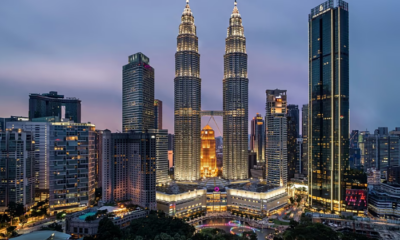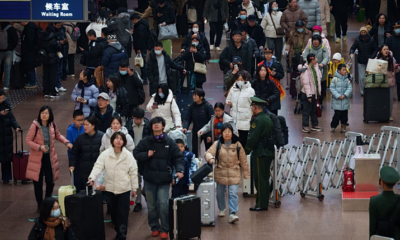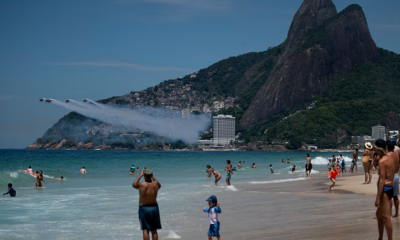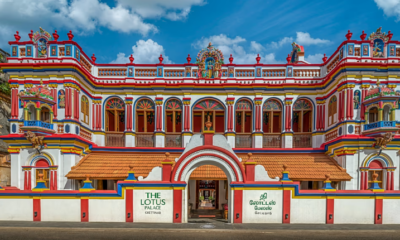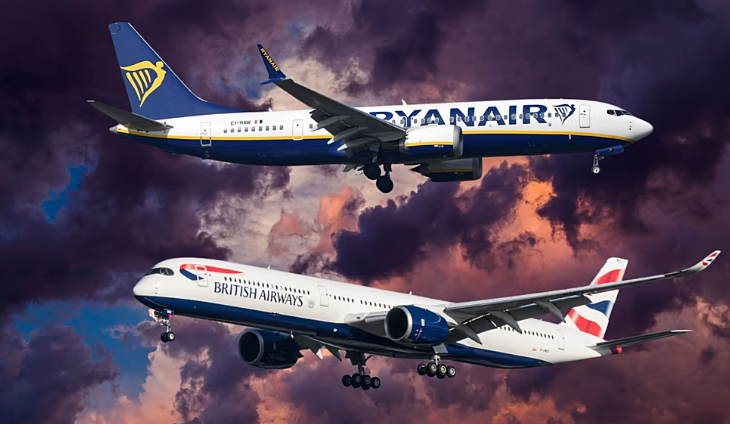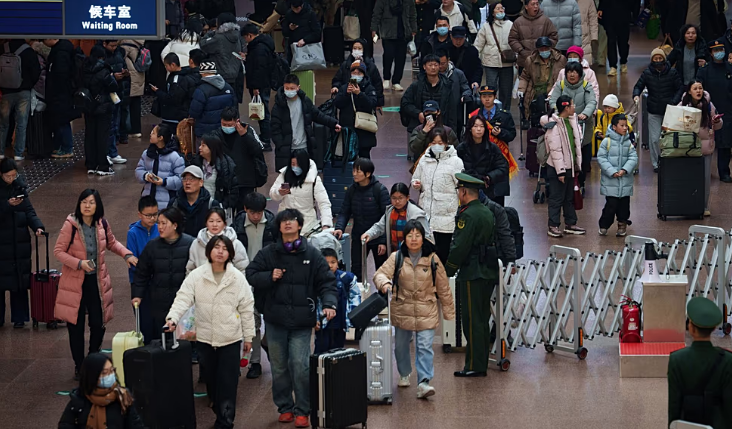Travel
French Quarter Offers Tranquil Retreat Amid Hanoi’s Bustling Streets
Hanoi’s French Quarter provides a peaceful contrast to the chaos of the Old Quarter, offering wide boulevards, a scenic lake, and elegant hotels while still being within walking distance of the city’s historic core. This area not only serves as a haven for travelers looking to escape the crowded streets but also showcases the unique blend of French colonial influences and Vietnamese culture.
A Respite from the Old Quarter’s Bustle
The Old Quarter, known for its dense traffic, street food vendors, and lively tourism scene, remains a top choice for visitors looking to immerse themselves in Hanoi’s energetic atmosphere. However, the narrow streets have struggled to accommodate increasing tourism, leading to restrictions such as a ban on tour buses. Despite these measures, taxis and ride-hailing services continue to congest the area.
For those seeking a balance between Hanoi’s vibrancy and a more relaxed stay, the French Quarter presents an ideal option. With its spacious streets and colonial architecture, the district provides both historical intrigue and a more leisurely pace.
Exploring Hoàn Kiếm Lake
One of the French Quarter’s highlights is Hoàn Kiếm Lake, a tranquil oasis amidst the city’s constant motion. The lake’s iconic Turtle Tower, perched on a small island, and the Ngoc Son Temple at its northern end offer cultural and historical insights. A bright red bridge leads visitors to the temple, where the city’s noise fades into the background.
Morning visitors can witness locals engaging in tai chi, jogging, or Zumba sessions along the lake’s shore, providing a glimpse into daily life in Hanoi. The tree-lined pathways and occasional pop music drifting from exercise groups add to the charm of this urban retreat.
Savoring Hanoi’s Signature Egg Coffee
Vietnam is known for its distinctive coffee culture, and Hanoi’s specialty—egg coffee—was born out of necessity during the 1940s when milk was scarce. Nguyen Van Giang, a bartender at the Grand Metropole Hotel, crafted the drink using whipped egg yolk, honey, and sugar, creating a rich and creamy beverage.
Today, visitors can sample this historic drink at Le Club Bar in the Sofitel Legend Metropole Hotel or visit Café Dinh, a family-run establishment founded by Giang’s descendants, offering an authentic experience with a view of Hoàn Kiếm Lake.
Luxury Stays in the French Quarter
The French Quarter is home to some of Hanoi’s most prestigious hotels, including the Capella Hanoi, a lavishly designed Art Deco-inspired retreat by architect Bill Bensley. The hotel celebrates opera culture with intricate decorations, memorabilia, and thematic interiors. Guests can enjoy Michelin-recommended dining at Backstage restaurant or partake in local craft activities such as pottery and lacquer painting.
Another iconic stay is the Sofitel Legend Metropole Hotel, a historic landmark dating back to 1901. This hotel has played a pivotal role in Vietnam’s history, hosting key political negotiations and serving as a shelter during wartime. Today, guests can tour the hotel’s wartime bunkers, unwind by the courtyard pool, or enjoy a yoga session on the rooftop terrace.
A Blend of History and Modern Comfort
Hanoi’s French Quarter offers an immersive journey through Vietnam’s colonial past while providing contemporary comforts. Whether strolling along Hoàn Kiếm Lake, indulging in Hanoi’s signature egg coffee, or staying in one of the district’s luxury hotels, visitors can experience a perfect blend of history, culture, and relaxation in this elegant enclave.
Travel
Ryanair Ranks Last in Which? Airline Satisfaction Survey as Jet2 and Singapore Airlines Lead
Travel
AirAsia X to Relaunch London-Kuala Lumpur Route With Bahrain Stopover
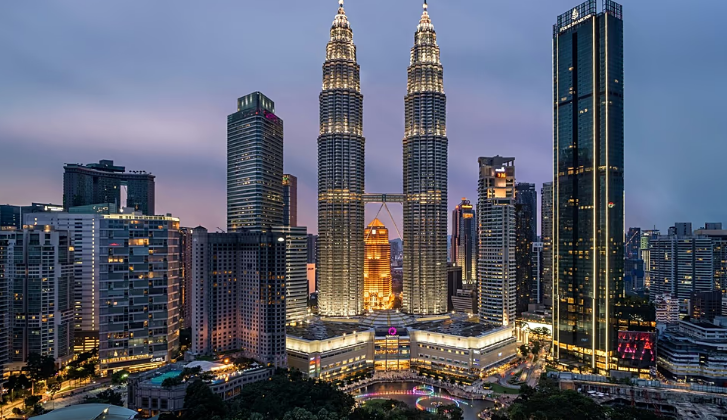
AirAsia X’s revived route between London Gatwick and the Malaysian capital will now include a stopover in Bahrain, the airline confirmed. The low-cost long-haul carrier is set to resume flights between London and Kuala Lumpur this summer, offering travellers a new connection via the Middle Eastern hub.
From 26 June 2026, passengers will be able to fly between Gatwick and Kuala Lumpur International Airport with a layover in Bahrain. Stopover times will range from 90 minutes to two hours, bringing the total journey to approximately 16 and a half hours.
The airline has announced promotional fares booked before 22 February for travel between 26 June and 30 November starting at €85 one-way. However, current ticket searches show the lowest available fares for this period at around €185 one-way from London to Kuala Lumpur.
AirAsia X has been steadily expanding its long-haul network. In mid-November, the airline introduced a direct service between Istanbul’s Sabiha Gökçen International Airport and Kuala Lumpur, a flight taking roughly 10 and a half hours.
The London route marks a return to Europe after more than a decade. AirAsia X previously operated direct flights from London and Paris Orly to Kuala Lumpur, but these were discontinued in 2012 due to rising jet fuel prices, higher taxes, and declining demand. Since then, the airline’s leadership, including CEO Tony Fernandes, expressed interest in restoring European services, with plans gradually materialising over the past few years.
Fernandes, now CEO of Capital A, AirAsia’s parent company, described Bahrain as a “strategic hub” for the airline’s European operations. “This is a defining step in the next phase of AAX’s growth,” he said. “Bahrain as our strategic aviation hub allows us to connect Asia with the Middle East and Europe more effectively while creating a scalable platform for future growth. Looking ahead, we will deepen partnerships with airports, tourism authorities and industry stakeholders to unlock new demand corridors.”
The airline has not disclosed which additional European destinations it may target next. Currently, AirAsia X serves around 150 destinations, covering cities in Australia, China, India, Japan, South Korea, and Uzbekistan, reflecting its wide-reaching network across Asia and beyond.
The relaunch of the London-Kuala Lumpur route with a Bahrain stopover signals AirAsia X’s renewed commitment to long-haul operations in Europe, combining affordability with strategic connectivity. For travellers seeking low-cost options on intercontinental flights, the route offers a competitive alternative to traditional carriers, while providing access to the growing Gulf aviation hub.
Travel
China Braces for Record 9.5 Billion Trips During Lunar New Year Travel Rush
-

 Entertainment2 years ago
Entertainment2 years agoMeta Acquires Tilda Swinton VR Doc ‘Impulse: Playing With Reality’
-

 Business2 years ago
Business2 years agoSaudi Arabia’s Model for Sustainable Aviation Practices
-

 Business2 years ago
Business2 years agoRecent Developments in Small Business Taxes
-

 Home Improvement1 year ago
Home Improvement1 year agoEffective Drain Cleaning: A Key to a Healthy Plumbing System
-

 Politics2 years ago
Politics2 years agoWho was Ebrahim Raisi and his status in Iranian Politics?
-

 Business2 years ago
Business2 years agoCarrectly: Revolutionizing Car Care in Chicago
-

 Sports2 years ago
Sports2 years agoKeely Hodgkinson Wins Britain’s First Athletics Gold at Paris Olympics in 800m
-

 Business2 years ago
Business2 years agoSaudi Arabia: Foreign Direct Investment Rises by 5.6% in Q1



